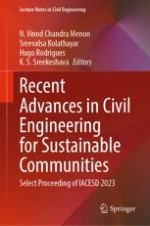2024 | OriginalPaper | Chapter
Investigate the Correlation Among Work Autonomy and Fringe Benefits Towards Job Satisfaction Among Construction Professional in Chennai
Authors : K. Kiruthiga, K. Vijaya Bhaskar Raju, R. Venkatakrishnaiah
Published in: Recent Advances in Civil Engineering for Sustainable Communities
Publisher: Springer Nature Singapore
Activate our intelligent search to find suitable subject content or patents.
Select sections of text to find matching patents with Artificial Intelligence. powered by
Select sections of text to find additional relevant content using AI-assisted search. powered by
